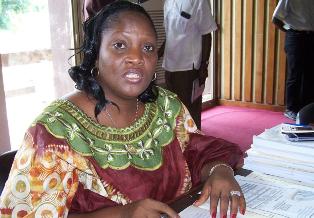The Damaging Human Rights Watch Police Report
The Damaging Human Rights Watch Police Report: Only President Sirleaf’s Intervention Can Save Us
The urgent need for emphasis on accountability and good governance in the security sector, as essential to Liberia’s promised post-conflict development continues to be stressed. The United States-based rights group-Human Rights Watch, on Thursday, August 22, 2013, became the latest institution to make this call against the backdrop of a damaging report released on the Liberia National Police.
The report, under the theme: No Money, No Justice -Police Corruption and Abuse in Liberia, documented the impact corruption within the Liberia National Police on the administration of justice. The report makes specific emphasis on extortions at various police depots, suggesting that payments are demanded by the police from complainants to register and pursue cases of all sorts in the country- something widely recognized (even by the police) as a common, if unlawful, practice.
“Of the individuals Human Rights Watch spoke with, registration fees ranged from LD$150 (US$2) to 500 LD ($6.75); the most common amount paid in 2012-2013 was about LD$250 (US$3.30),” the report noted, further alleging that registration and other fees even occur when the perpetrators of the crime are the police themselves.
“One woman from Monrovia described how a group of officers from the Police Support Unit (PSU) robbed her and several other women of their valuables while they were outside a house at night; the woman said she and the women tried to file a complaint with the West Point depot but were asked to pay 500 LD ($6.75) to register the case,” said the report.
Human Rights Watch quoted some police officers spoke with as expressing dismay at their inability to respond to victim complaints because of lack of fuel or a working vehicle. The Human Rights Watch report, however, acknowledges the numerous challenges faced by police officers themselves in performing their jobs, saying they lack essential resources, such as fuel for vehicles an work long hours for low salaries. Towards this, the organization emphasized the need for the government and foreign donors to investigate the persistent logistics shortfalls that contribute to police officers preying upon the public for material support.
Even though the hierarchy of the Liberia National police is yet to response to the Human Rights Watch report, probably, because it may be perusing it, there may be difficulties in challenging such report. We, at the New Dawn Liberia, have raised these issues in our publications/editorials on a number of occasions, attributing the unfortunate situation with the police (as mentioned by the human rights organization) to the lack of logistics and motivation, as well as low salaries.
[bsa_pro_ad_space id=1]
In these publications/editorials, we emphasized the need for donor support to the LNP, as well as appealed to the Liberian Legislature for more budgetary support to the police, but to no avail, even though it does give men and women in the field the right to exhibit attitudes very unbecoming of good police officers. Perhaps the Government of Liberia may not have listened to us because the New Dawn Liberia may not be an international institution.
With such a damaging image of the Liberia National Police, an institution that benefitted and continues to benefit from the Security Sector Reform, we can only and prayerfully hope that the Legislative and Executive Branches of the Liberian Government can make some interventions-administratively, financially and professionally, to remedy the situation so that the police can once more win public confidence. Towards this direction, only the Liberian Chief Executive can lead the way. This is why the need for her direct intervention at the levels previously mentioned can save us.




















